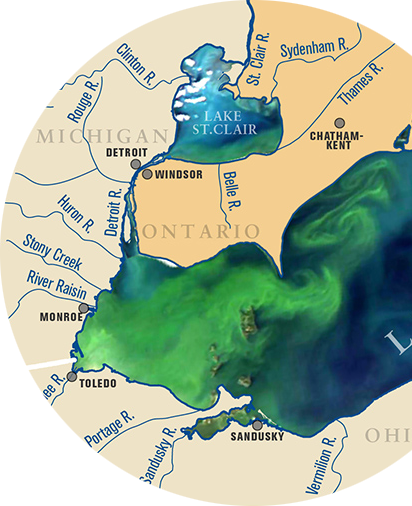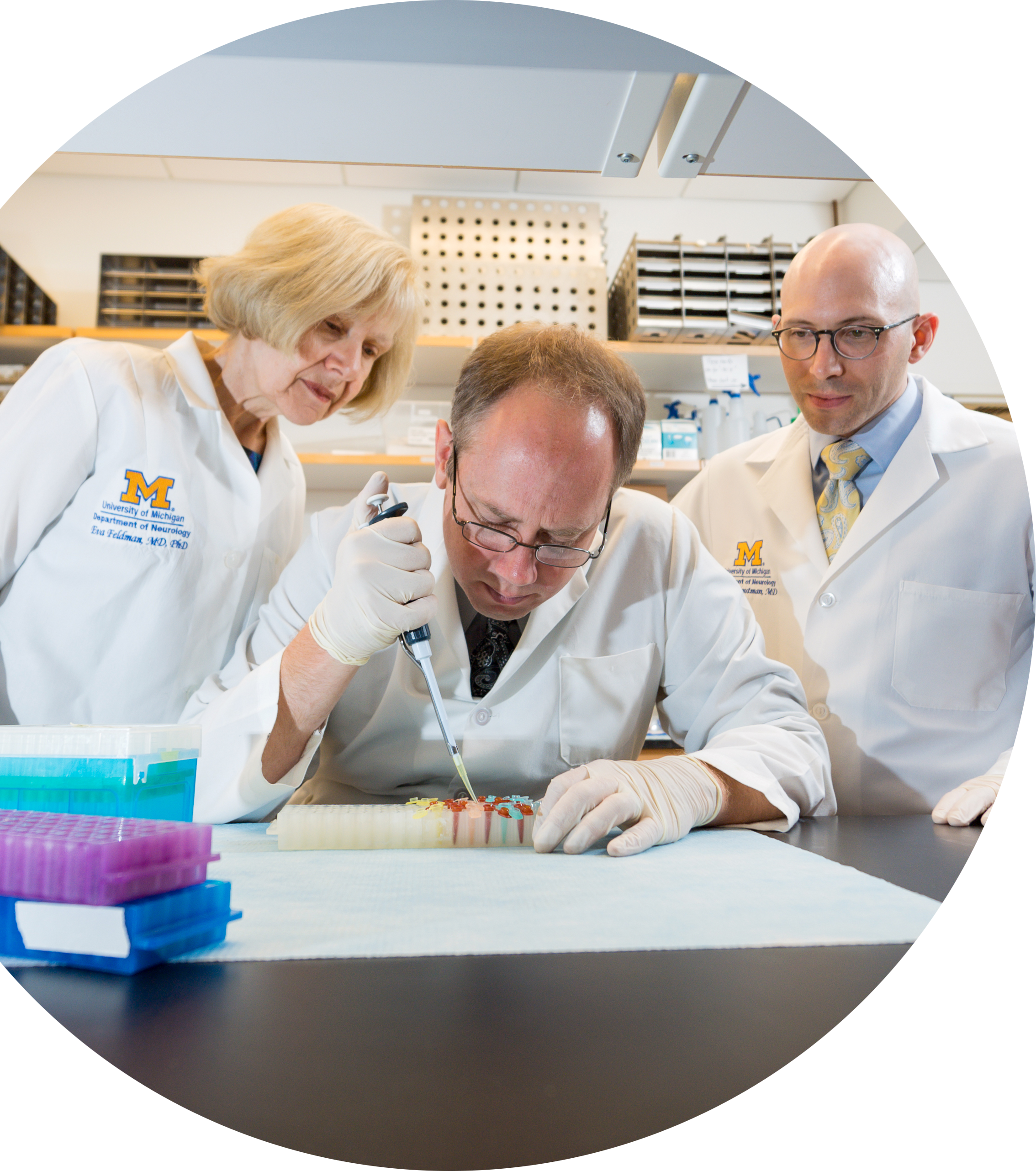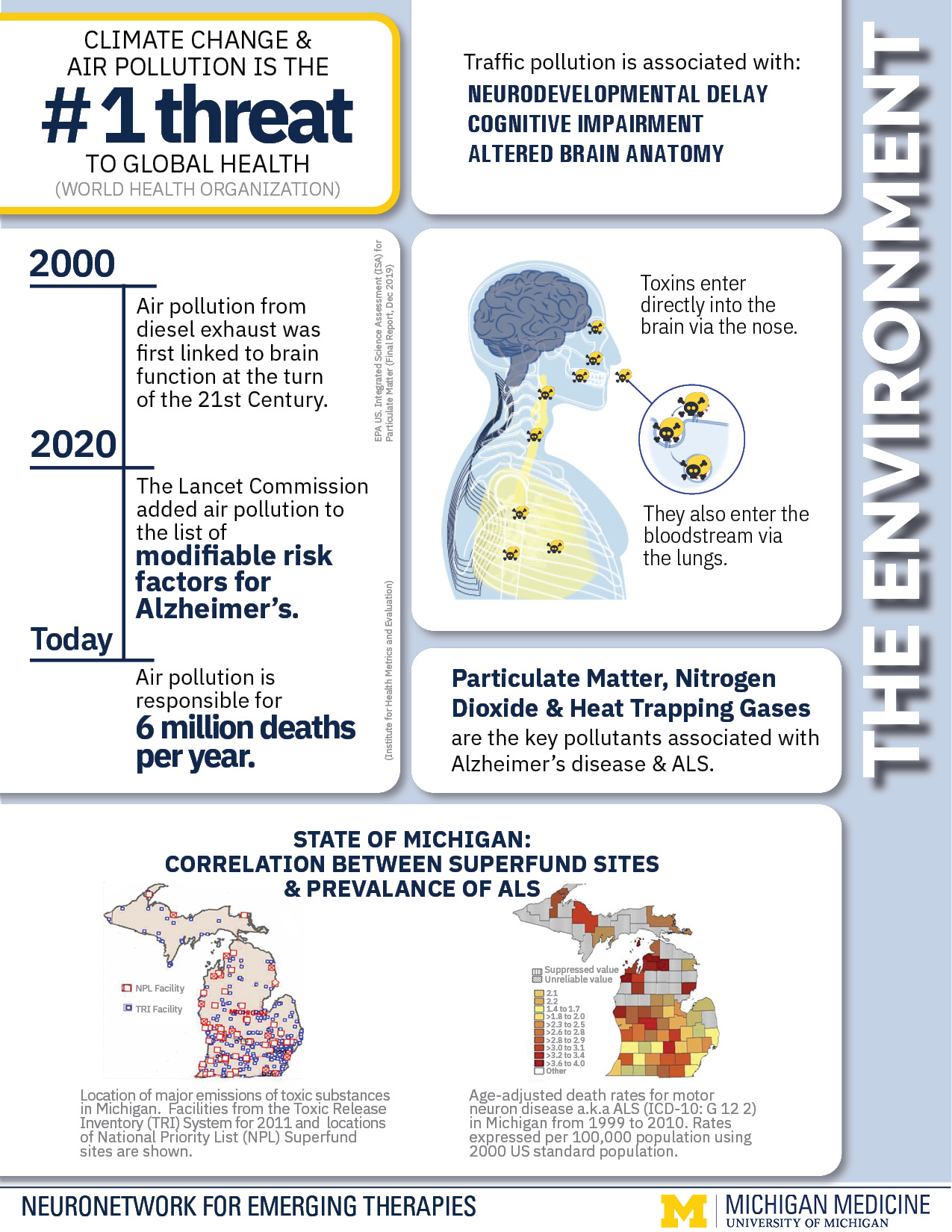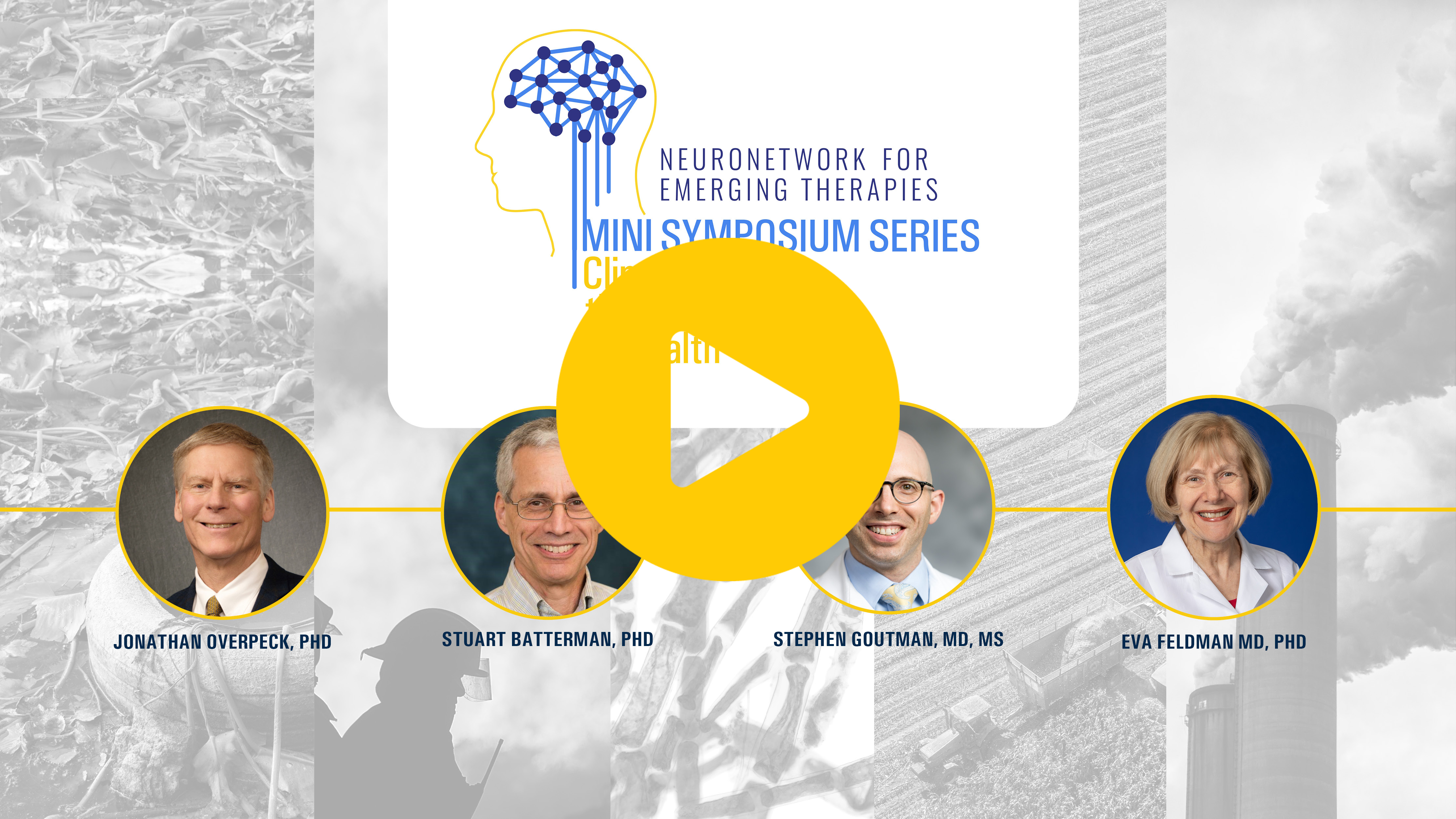The environment has become polluted with several toxic substances, such as persistent organic pollutants (POPs), pesticides, and metals, as well as air pollution particulates and oxidizing (reactive) gases. These substances can be neurotoxic and injure nerves, leading to neurological diseases.
- The “exposome” is an individual’s cumulative lifetime exposure to toxic environmental hazards, which can affect their likelihood of developing a neurological illness or other diseases.
- People may be exposed to environmental toxins in their homes and their surroundings, or at work, such as an occupational hazard.
- The “exposome” can also interact with an individual’s genetic profile to affect the risk of disease development.
- Amyotrophic lateral sclerosis (ALS) is linked with exposure to POPs, pesticides, and metals, and possibly air pollution.
- Alzheimer’s disease (AD) is linked with exposure to air pollution and possibly pesticides and metals.
- Parkinson’s disease (PD) is possibly linked with exposure to pesticides, metals, and air pollution.














